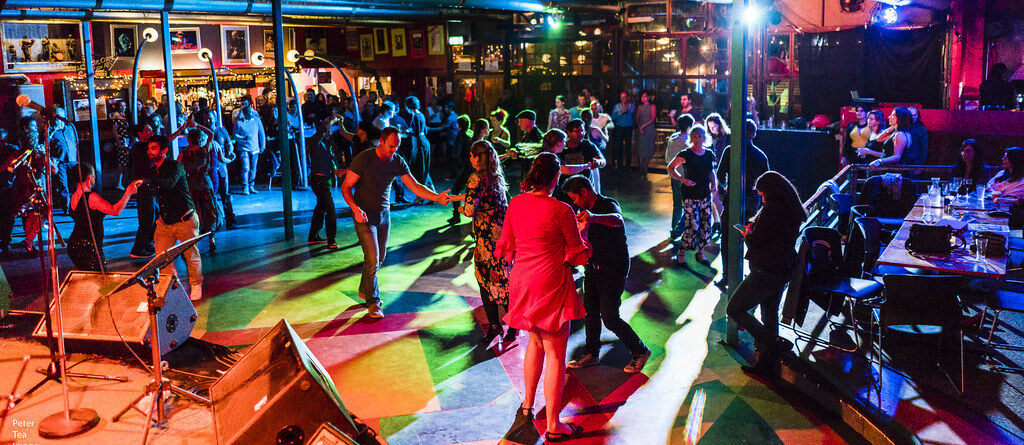Origin of Genres: Salsa Music

In this edition of our “Origin of Genres”, we talk about the history of the Latin music style: salsa music. When you are talking to any Latin music enthusiast, salsa music will inevitably get a reaction. The rhythm, the vocals, the lively dancing, the enthusiastic singers, and the overwhelming desire to join the dance floor are essential to the genre of salsa music.
There’s controversy about how the music acquired its name. Salsa in Spanish means sauce. It is believed that much like the sauce it is added to give food a bit of a zing, DJs would shout “SALSA!” when they were about to perform this particular style of music. This was meant to spice up the music and the dancing.
There is also a lot of controversy as to where is the birthplace of salsa, some people think that the origin must be Cuba since it borrows and updates a lot of Afro-Cuban music styles. The Cuban genre of son and traditional call-and-response patterns often found in African songs are heavy influences in salsa music.
Other people think salsa was born in New York in the 60s thanks to an influx of Puerto Rican, Mexican and Cuban musicians into the city. The first self-identified salsa bands were assembled in New York and were predominantly formed by Cubans and Purto Ricans.
Some people even believe that salsa music is not a thing; the legendary Tito Puente believed that salsa was not a genre. I know what you’re thinking- the Tito Puente, the same Tito that is often credited with developing the salsa sound, didn’t believe salsa to be a music style? Yes, that Tito Puente, when asked about it, would often reply that he was a musician and not a cook.
No matter what school of thought you believe in, all salsa-enthusiasts concur in one thing: salsa music is unlike any other.
A bit of history
This particular music genre borrows from the Cuban genre of son. The music is energetic, extravagant, and dynamic. Saying that salsa is one rhythm, one set of steps, or one set of instruments would not even cover half of it. Salsa bands often feature clave, maracas, bongos, tamboras, trumpets, trombones, pianos, guitars, basses, accordions, batos, trumpets, saxophones, and the list goes on.

Throughout the 60s and 70s salsa evolved and as more people started to bring their own musical influences, the sound started to fuse and mix. This happened predominantly in New York. From this extraordinary mixture of sounds and styles, a lot of other lively Latin sounds started to flourish; mambo, conga, rumba, and cha-cha are some of the most notable examples. Renowned acts that came from this era were Arsenio Rodriguez, Celia Cruz (often referred to as the Queen of Salsa), Johnny Pacheco, Willie Colón and Hector Lavoe.
After that, musicians took this new and exciting mix of sounds back to their home countries where even more variants and styles of Latin music were born. In the 80s salsa took over Latin America. Colombia, Peru, Mexico, Panama, and Venezuela started producing their very own take on salsa. Notable musicians that came from this era are Oscar D’Leon, Joe Arroyo, and Grupo Niche.
Then came the 90s and the pop salsa explosion took the United States by storm. In New York, producer Sergio George started to record music that mixed salsa music with contemporary styles of pop. The leaders of this movement were predominantly Puerto Rican. A small insurgence of Japanese salsa bands also reached the spotlight during this period. Artists that came from this era are Marc Anthony, Tito Nieves, La India, and Gloria Stefan.

Salsa has evolved and gone through many changes over the years, but it remains a staple in any Latinx household. The genre evokes a lot of feelings in anyone that comes from a Latin American country; it means energy, it means community, it means home. If you’ve never gone to a Salsa club, or gone salsa dancing, you should try to find out when the next meeting will be, because it is quite the experience.
If you want to listen to some salsa classics you can check out our curated salsa music playlist:


